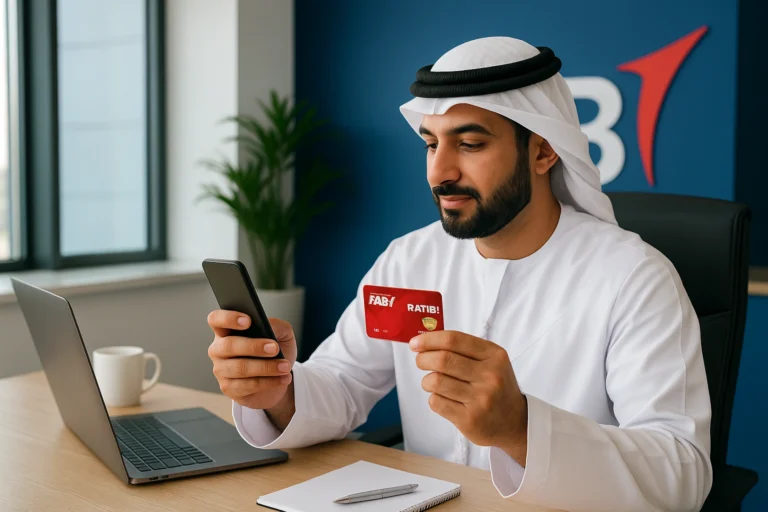What Is the Minimum Salary to Open Bank Account in UAE
Opening a bank account in the UAE is a must, whether you’re moving here for work, starting a business, or simply managing your finances. But one of the key factors that determines whether you can open an account is your monthly salary.
Generally, most banks in the UAE require a minimum salary of AED 3,000 to open a standard account. However, this can vary depending on the bank and type of account you choose. Some accounts may require a higher salary for added features like credit cards, overdrafts, or premium banking services. On the other hand, a few banks also offer zero-salary or zero-balance accounts specifically designed for students, housewives, or freelancers.
If you’re employed in a government or public-sector job, banks may offer you flexible account options, even if your salary is slightly lower, as these are considered more stable income sources.
How to Open a Bank Account in Dubai?
Dubai is one of the UAE’s main financial hubs, offering a range of banking institutions and account types. While the process can seem overwhelming, it’s quite straightforward if you follow the correct steps.
Step 1: Confirm Eligibility
First, make sure you meet the basic eligibility criteria like being a UAE resident, having a valid visa, and receiving a monthly income that meets the bank’s minimum salary requirement.
Step 2: Choose the Right Bank
There are both international and local banks in Dubai. Some offer better digital banking services, while others are known for low fees or specific account features. Think about what you need: do you want online banking, a free debit card, access to mobile apps, or investment options?
Step 3: Pick Your Account Type
You can choose from checking (current) accounts, savings accounts, or salary accounts. Current accounts are ideal for daily use and payments. Savings accounts help you earn profit or interest over time. Salary accounts are linked directly to your monthly income and often come with lower fees.
Step 4: Gather Required Documents
Most banks will ask for the following documents:
- Valid passport with residency visa
- Emirates ID
- Salary certificate from your employer
- Proof of address (utility bill, tenancy contract, or similar)
Step 5: Submit Application
Once your documents are ready, you can either visit a branch or apply online. Some banks also offer video KYC (Know Your Customer) processes, making it easier to apply from home.
Minimum Salary Required by Bank
Emirates NBD
To open a basic current account, Emirates NBD generally requires a minimum salary of AED 3,000. However, for special or premium accounts, a higher salary of AED 5,000 or more may be needed. These accounts may include added benefits like credit cards, lifestyle discounts, and higher withdrawal limits.
First Abu Dhabi Bank (FAB)
Basic Salary Account: AED 3,000 salary required
FAB, the largest bank in the UAE, offers multiple account types, including savings, salary, and current accounts. They also provide the FAB iSave Account, which requires no minimum salary or balance and is fully digital. This is perfect for freelancers or remote workers who want a low-commitment, easy-to-use account. After opening an account, you can use the PPC FAB page to check your balance.
RAKBANK
RAKBANK offers flexible account options with minimum salary requirements starting from AED 3,000. For premium services under the RAKmore program, the minimum salary jumps to AED 50,000, which includes exclusive benefits like lifestyle offers, travel perks, and dedicated relationship managers.
Dubai Islamic Bank
Dubai Islamic Bank (DIB) offers current accounts with a minimum salary requirement of AED 3,000. These accounts follow Islamic banking principles, offering profit-based savings and current account options, and are ideal for customers looking for Sharia-compliant solutions.
HSBC UAE
HSBC typically requires a minimum salary of AED 5,000 for personal banking accounts. For higher-tier accounts like Advance or Premier, the requirements can go up to AED 15,000 or AED 30,000, offering perks like free global transfers, multi-currency accounts, and financial planning services.
Abu Dhabi Islamic Bank (ADIB)
ADIB offers current accounts with a minimum salary requirement of AED 5,000. These accounts often come with benefits like no monthly fee, mobile banking, and access to Islamic financial products.
Banks Offering Zero-Balance or Low-Income Accounts
If you’re someone with irregular income or working part-time, don’t worry. Several banks offer accounts with no salary requirement or zero balance features:
- Some banks allow you to open a savings account without a salary or even maintain a zero balance. These accounts are ideal for students, freelancers, or stay-at-home parents.
- Others offer digital-only accounts with no physical branch visits required and low or no maintenance charges.
- However, such accounts often have restrictions, like limited daily transactions or no checkbook facilities.
Always read the terms carefully to ensure they meet your needs.
Frequently Asked Questions
Which bank has no minimum salary requirement in the UAE?
Some banks offer savings accounts or digital accounts that don’t require a minimum salary. These are ideal for freelancers or part-time workers.
Can I open a bank account in the UAE without a salary?
Yes, but only with selected account types like savings or prepaid accounts, and some restrictions may apply.
Which bank account is best for salary in the UAE?
It depends on your salary and usage. RAKBANK is known for competitive salary transfer benefits, while Emirates NBD offers strong digital banking services.
What is the minimum salary to open an account with Dubai Islamic Bank?
The required minimum salary is AED 3,000, and they provide Sharia-compliant options with basic banking services.
Final Thoughts
Understanding the minimum salary requirements for opening a bank account in the UAE is key to managing your finances effectively. Whether you’re a salaried employee, a freelancer, or a new resident, you can find an account that fits your lifestyle and income level.
Always compare account features, maintenance fees, online banking facilities, and rewards before making a choice. Opening an account is easier than you might think—just gather the right documents, choose the account that matches your income, and follow the bank’s onboarding process.






